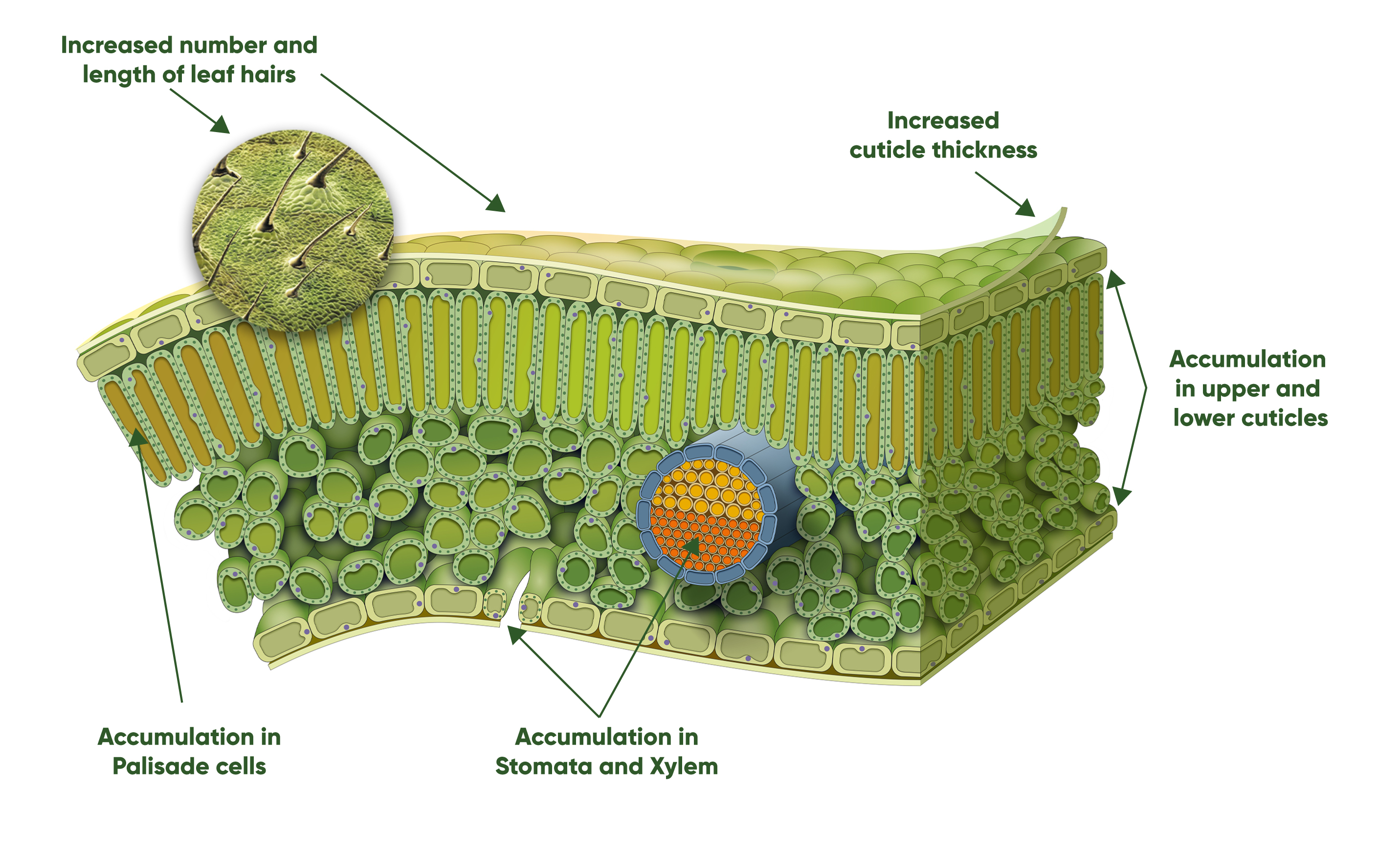Silicon (Si) is the second most abundant element on the planet and has 3 main functions that relate to plant growth. As a soil conditioner; long-chain silicon polymers, that are not bioactive, help bind soil particles to reduce leaching and increase aeration. As a bioregulator; bioactive silicon aids growth whilst a plant is under conditions of stress. As a structural component; bioactive silicon is accumulated within plants, increasing the strength and resilience of cell walls.
As a fertiliser, silicon exists in different forms, with each form varying in terms of its characteristics and availability to plants. Silicon must be in the form of monosilicic acid in order to ensure that it is freely accessible to plants, for immediate uptake and utilisation.
Our unique and advanced
iNHiB™ technology results in the formulation of a stable, bioactive monosilicic acid within our products. This
bioactive silicon is immediately available to be laid down within plants.
iNHiB technology also enhances the tank-mixing ability of silicon, allowing seamless integration with other products. Extensive research by the University of Hertfordshire has demonstrated how
iNHiB™-formulated silicon works in practice. Treated plants show an increase in cuticle thickness, leaf hair strength, length and density, along with the formation of phytoliths. These enhanced characteristics make a plant more
resilient.

